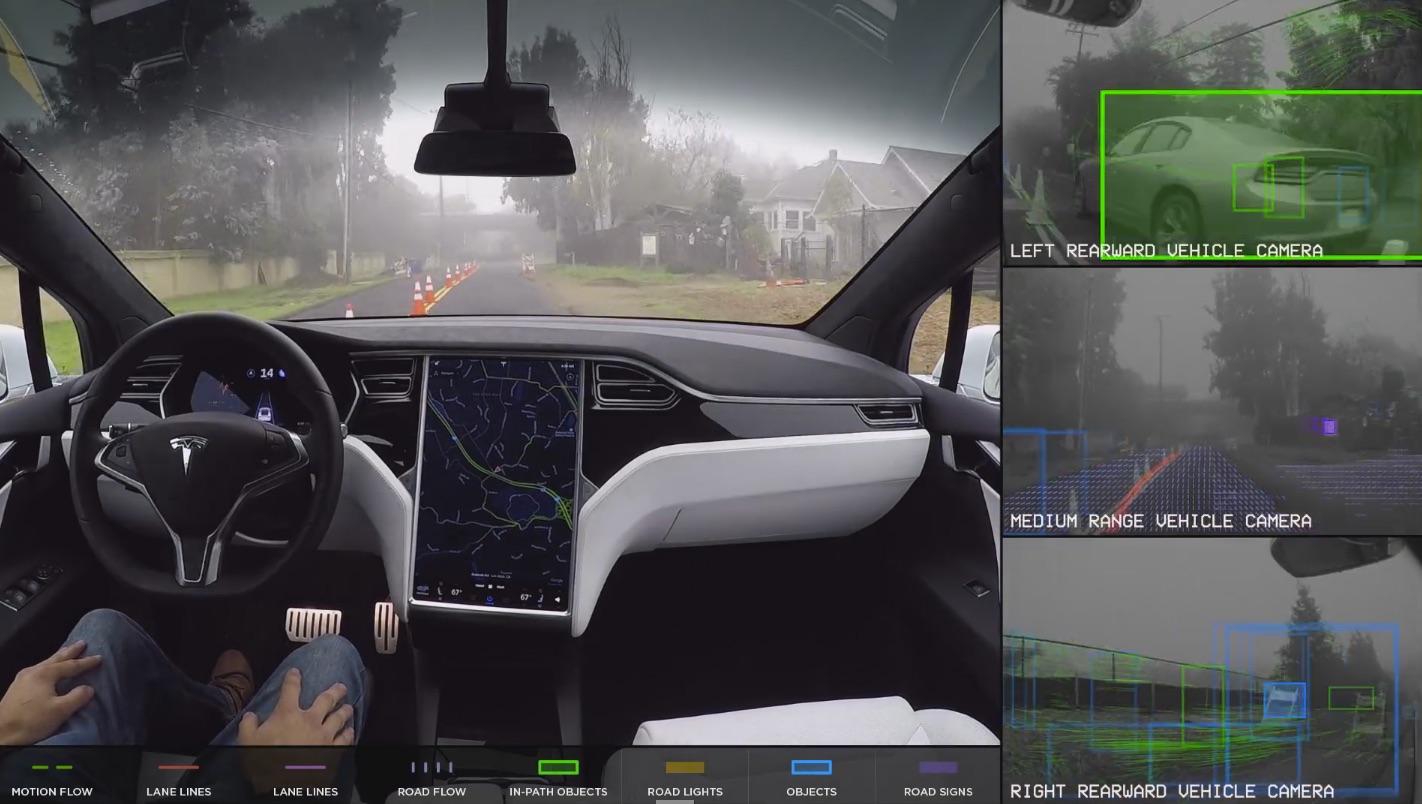
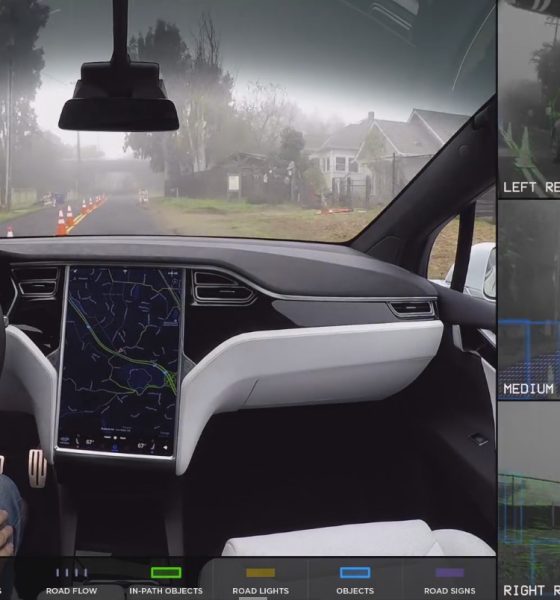
News
Netherlands ranks 1st in autonomous vehicle readiness, US places 3rd
The recently-released Automated Vehicles Readiness Index (AVRI) report by auditing firm KPMG has revealed that the Netherlands is the world’s most autonomous vehicle-ready country. The AVRI, which ranks nations across the globe according to their readiness for self-driving technologies, has also placed the United States in third place, right behind Singapore.
KPMG International evaluated countries according to four particular pillars. To make it to the index’s rankings, nations must perform well on policy and legislation, technology and innovation, infrastructure, and finally, consumer acceptance. The countries’ scores for each pillar are then aggregated and ranked.
Topping the list was the Netherlands, which was the clear world leader in the AVRI. The European nation ranked 1st in infrastructure, 2nd in consumer acceptance, 3rd in policy and legislation, and 4th in technology and innovation. The country’s aggregated score was 27.73 points, placing it well ahead of other nations in the index.
According to an EE Times report, the Netherlands’ impressive performance was attributed largely to its AV-friendly infrastructure. As of writing, the Netherlands boasts the highest density of electric vehicle charging points in the world. By 2016, the European nation already offered 26,789 charging points for the public. The country is also known for its well-maintained road network, which is currently rated as one of the world’s best.
In a statement to Geospatial World News, KPMG Netherlands Digital Advisory Manager Stijn de Groen noted that the country, even at this point, is already prepared for the upcoming autonomous vehicle revolution.
“The Dutch ecosystem for AVs is ready. The intensively-used Dutch roads are very well developed and maintained, and other indicators like telecoms infrastructure are also very strong. In addition, the Dutch government Ministry of Infrastructure has opened the public roads to large-scale tests with self-driving passenger cars and lorries,” the KPMG executive said, according to a GWN report.
AVRI’s second-placer on its rankings is Singapore, topping the list both in policy and legislation as well as consumer acceptance. According to KPMG, the Asian city-state received high marks in these pillars due to its recent amendment to its Road and Traffic Act, which allowed autonomous vehicles to be tested on public roads. Singaporeans were also found to be readily accepting of self-driving cars as a means of transportation.
Singapore also ranked 8th in technology and innovation and 2nd in infrastructure. The Asian city-state earned an aggregated score of 26.08 points.
The United States ranks third in the AVRI, despite ranking first in technology and innovation. Among all the countries in the index, the US earned near-maximum ratings on industry partnerships and research and development hubs, among other factors. The country’s overall score, however, was hampered by its low ratings on patents and overall usage of electric cars. The limited adoption and actual capabilities of fully autonomous vehicles also contributed to the country’s score.
Overall, the US ranked 7th in infrastructure, 10th in policy and legislation and 4th in consumer acceptance. The United States’ aggregated score in the AVRI is 24.75 points.
In a statement to GWN, KPMG US Infrastructure Advisory Principal Timothy D. Wilschetz noted that the country, while highly innovative in the autonomous vehicle sphere, still suffers from several setbacks. Wilschetz believes, however, that US regulators have the power to change this trend.
“The US has a highly innovative but largely disparate environment with little predictability regarding the uniform adoption of national standards for AVs. Therefore, the prospect of widespread driverless vehicles is unlikely in the near future. However, federal policy and regulatory guidance could certainly accelerate early adoption, particularly concerning limited freight applications such as truck platooning.”
Top 10 countries most prepared for the future of autonomous transportation by KPMG
- Netherlands
- Singapore
- United States
- Sweden
- United Kingdom
- Germany
- Canada
- United Arab Emirates
- New Zealand
- South Korea

News
Tesla FSD (Supervised) fleet passes 8.4 billion cumulative miles
The figure appears on Tesla’s official safety page, which tracks performance data for FSD (Supervised) and other safety technologies.

Tesla’s Full Self-Driving (Supervised) system has now surpassed 8.4 billion cumulative miles.
The figure appears on Tesla’s official safety page, which tracks performance data for FSD (Supervised) and other safety technologies.
Tesla has long emphasized that large-scale real-world data is central to improving its neural network-based approach to autonomy. Each mile driven with FSD (Supervised) engaged contributes additional edge cases and scenario training for the system.
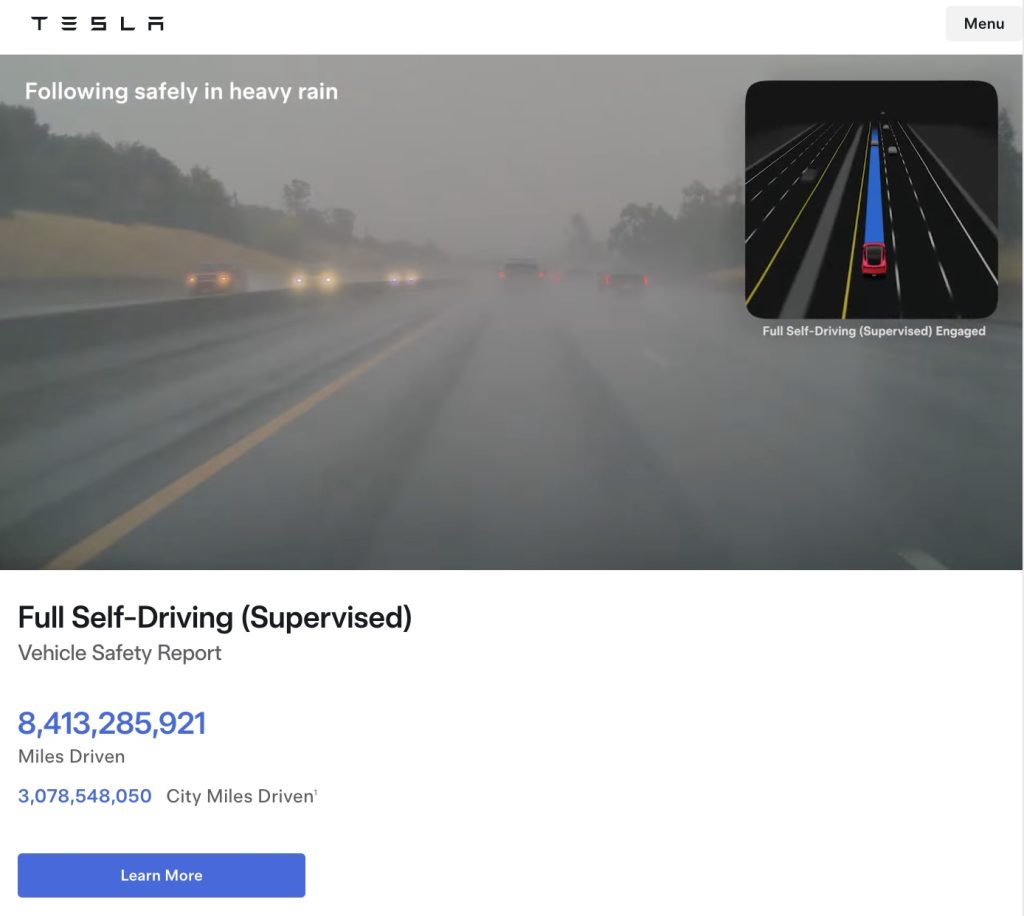
The milestone also brings Tesla closer to a benchmark previously outlined by CEO Elon Musk. Musk has stated that roughly 10 billion miles of training data may be needed to achieve safe unsupervised self-driving at scale, citing the “long tail” of rare but complex driving situations that must be learned through experience.
The growth curve of FSD Supervised’s cumulative miles over the past five years has been notable.
As noted in data shared by Tesla watcher Sawyer Merritt, annual FSD (Supervised) miles have increased from roughly 6 million in 2021 to 80 million in 2022, 670 million in 2023, 2.25 billion in 2024, and 4.25 billion in 2025. In just the first 50 days of 2026, Tesla owners logged another 1 billion miles.
At the current pace, the fleet is trending towards hitting about 10 billion FSD Supervised miles this year. The increase has been driven by Tesla’s growing vehicle fleet, periodic free trials, and expanding Robotaxi operations, among others.
With the fleet now past 8.4 billion cumulative miles, Tesla’s supervised system is approaching that threshold, even as regulatory approval for fully unsupervised deployment remains subject to further validation and oversight.
Elon Musk
Elon Musk fires back after Wikipedia co-founder claims neutrality and dubs Grokipedia “ridiculous”
Musk’s response to Wales’ comments, which were posted on social media platform X, was short and direct: “Famous last words.”
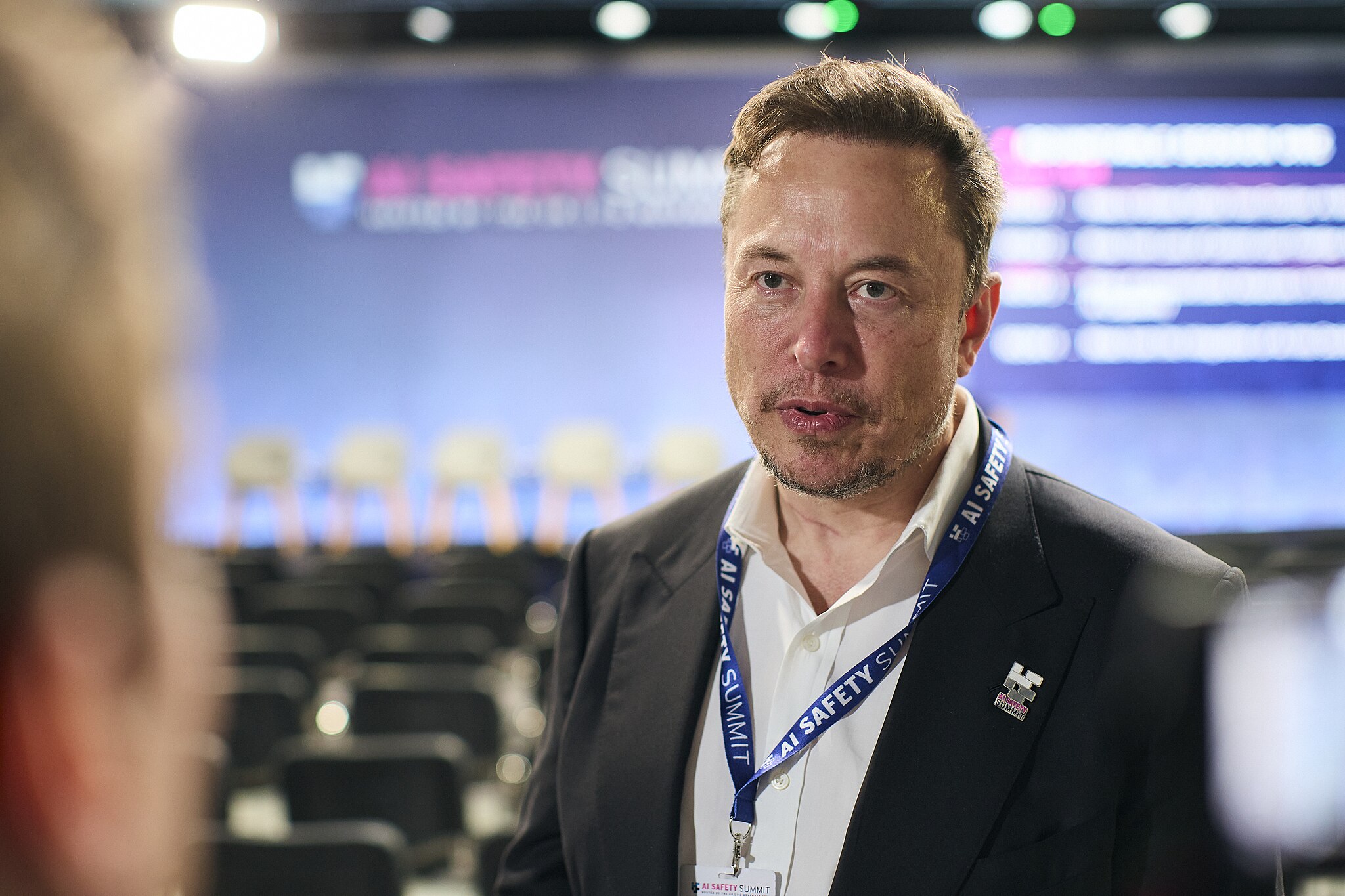
Elon Musk fired back at Wikipedia co-founder Jimmy Wales after the longtime online encyclopedia leader dismissed xAI’s new AI-powered alternative, Grokipedia, as a “ridiculous” idea that is bound to fail.
Musk’s response to Wales’ comments, which were posted on social media platform X, was short and direct: “Famous last words.”
Wales made the comments while answering questions about Wikipedia’s neutrality. According to Wales, Wikipedia prides itself on neutrality.
“One of our core values at Wikipedia is neutrality. A neutral point of view is non-negotiable. It’s in the community, unquestioned… The idea that we’ve become somehow ‘Wokepidea’ is just not true,” Wales said.
When asked about potential competition from Grokipedia, Wales downplayed the situation. “There is no competition. I don’t know if anyone uses Grokipedia. I think it is a ridiculous idea that will never work,” Wales wrote.
After Grokipedia went live, Larry Sanger, also a co-founder of Wikipedia, wrote on X that his initial impression of the AI-powered Wikipedia alternative was “very OK.”
“My initial impression, looking at my own article and poking around here and there, is that Grokipedia is very OK. The jury’s still out as to whether it’s actually better than Wikipedia. But at this point I would have to say ‘maybe!’” Sanger stated.
Musk responded to Sanger’s assessment by saying it was “accurate.” In a separate post, he added that even in its V0.1 form, Grokipedia was already better than Wikipedia.
During a past appearance on the Tucker Carlson Show, Sanger argued that Wikipedia has drifted from its original vision, citing concerns about how its “Reliable sources/Perennial sources” framework categorizes publications by perceived credibility. As per Sanger, Wikipedia’s “Reliable sources/Perennial sources” list leans heavily left, with conservative publications getting effectively blacklisted in favor of their more liberal counterparts.
As of writing, Grokipedia has reportedly surpassed 80% of English Wikipedia’s article count.
News
Tesla Sweden appeals after grid company refuses to restore existing Supercharger due to union strike
The charging site was previously functioning before it was temporarily disconnected in April last year for electrical safety reasons.
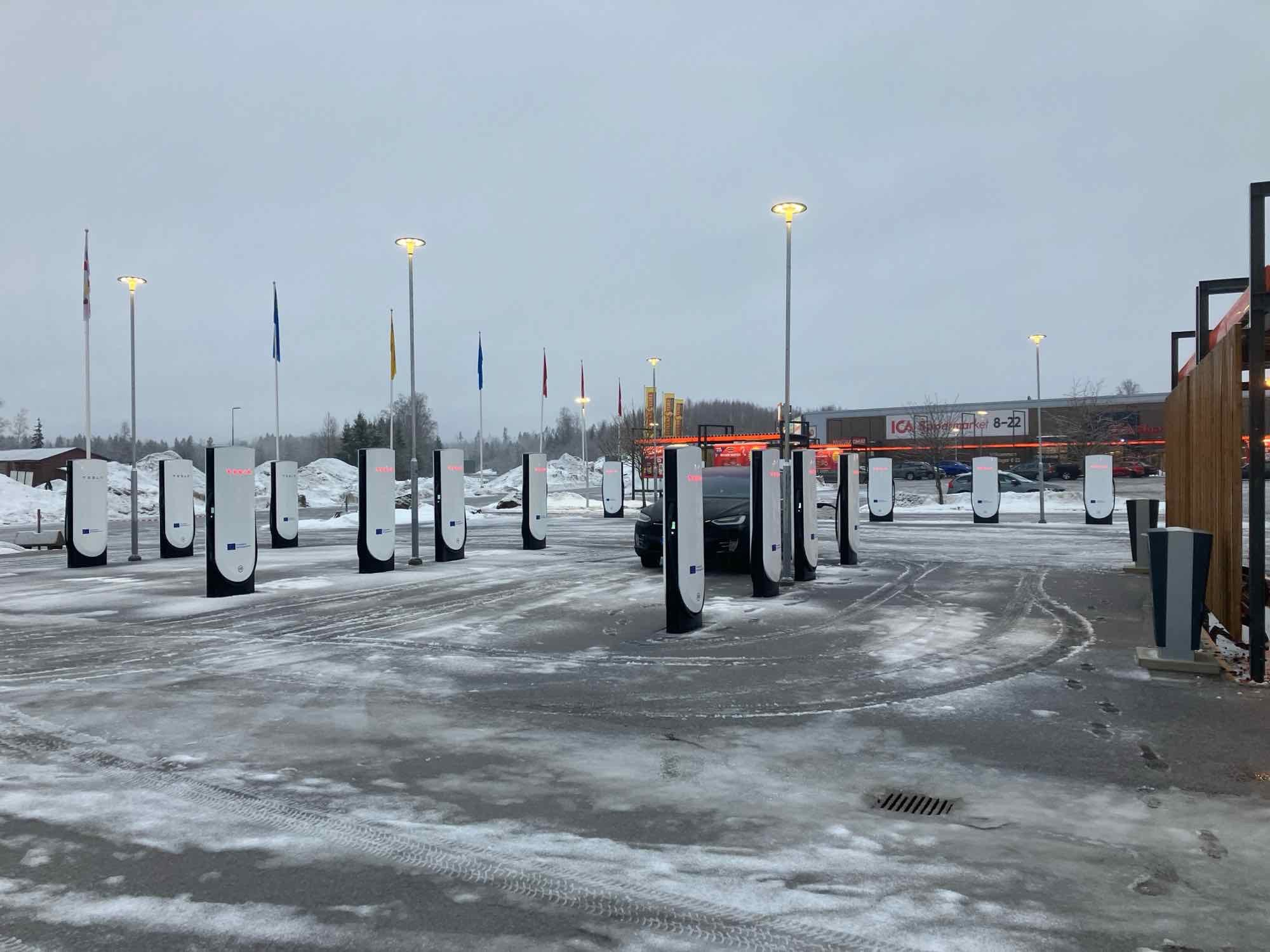
Tesla Sweden is seeking regulatory intervention after a Swedish power grid company refused to reconnect an already operational Supercharger station in Åre due to ongoing union sympathy actions.
The charging site was previously functioning before it was temporarily disconnected in April last year for electrical safety reasons. A temporary construction power cabinet supplying the station had fallen over, described by Tesla as occurring “under unclear circumstances.” The power was then cut at the request of Tesla’s installation contractor to allow safe repair work.
While the safety issue was resolved, the station has not been brought back online. Stefan Sedin, CEO of Jämtkraft elnät, told Dagens Arbete (DA) that power will not be restored to the existing Supercharger station as long as the electric vehicle maker’s union issues are ongoing.
“One of our installers noticed that the construction power had been backed up and was on the ground. We asked Tesla to fix the system, and their installation company in turn asked us to cut the power so that they could do the work safely.
“When everything was restored, the question arose: ‘Wait a minute, can we reconnect the station to the electricity grid? Or what does the notice actually say?’ We consulted with our employer organization, who were clear that as long as sympathy measures are in place, we cannot reconnect this facility,” Sedin said.
The union’s sympathy actions, which began in March 2024, apply to work involving “planning, preparation, new connections, grid expansion, service, maintenance and repairs” of Tesla’s charging infrastructure in Sweden.
Tesla Sweden has argued that reconnecting an existing facility is not equivalent to establishing a new grid connection. In a filing to the Swedish Energy Market Inspectorate, the company stated that reconnecting the installation “is therefore not covered by the sympathy measures and cannot therefore constitute a reason for not reconnecting the facility to the electricity grid.”
Sedin, for his part, noted that Tesla’s issue with the Supercharger is quite unique. And while Jämtkraft elnät itself has no issue with Tesla, its actions are based on the unions’ sympathy measures against the electric vehicle maker.
“This is absolutely the first time that I have been involved in matters relating to union conflicts or sympathy measures. That is why we have relied entirely on the assessment of our employer organization. This is not something that we have made any decisions about ourselves at all.
“It is not that Jämtkraft elnät has a conflict with Tesla, but our actions are based on these sympathy measures. Should it turn out that we have made an incorrect assessment, we will correct ourselves. It is no more difficult than that for us,” the executive said.








